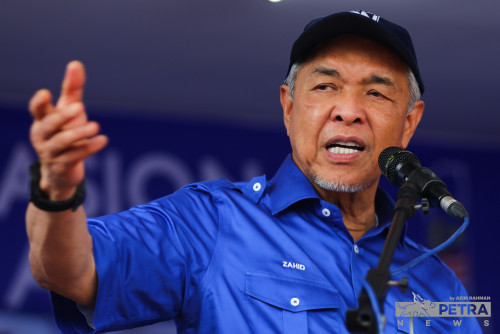KUALA LUMPUR – The Election Reforms Committee (ERC) has proposed a dual-election system, one of 49 electoral reform recommendations submitted to Putrajaya.
If the government adopts and adapts this particular recommendation, Malaysia will still see the current first-past-the-post system maintained at the state level, while the parliamentary level will see the victor selected based on a popular vote, or proportional representation.
This way, voters will no longer cast their ballots for a parliamentary candidate representing the party, but will instead be directly voting for the party.
ERC chairman Tan Sri Abdul Rashid Abdul Rahman told The Vibes recently in an exclusive interview that he believes this system will be able to arrest incidents of party-hopping at the federal level, considering that each federal constituency will be locked onto a political party instead of a political candidate.
“While you choose the candidate in the first-past-the-post system, the proportional system that we are introducing would not be a complicated one. It’s very simple – you choose the party. There will be the name of the party and the party symbol on the ballot paper.
“You choose the party, then we will have proportional results, that is the number of people choosing the party. We still have constituencies. So, 222 constituencies will be contested.
“Parties will submit their list of candidates according to priority – they could start with party leaders and so on, they may have 100 to 200 people on the list of their priorities.
“And this list must be declared. You cannot just produce a list when there are results. It can’t be done. The names must be declared after nomination day. They declare their candidates. Nominations are only for the political parties,” said Rashid.
He added that at national-level elections, each political party submits their list of candidates contesting for federal seats in each state.
So how does proportional representation at the federal level work?
To put this in layman’s terms, let’s imagine that Kedah and Perlis make up the entirety of Malaysia, with a general election with Party A (PA), Party B (PB) and Party C (PC) contesting to form the federal government.
The three parties must submit their list of candidates for each state to the EC on nomination day.
Unlike the old system where the names are submitted for a specific seat, this is a general list based on how many federal seats a party wants to contest in.
In Perlis, where there are three parliamentary seats. Let assume the three parties are contesting in all three seats. Therefore, each party will submit three names for Perlis.
Meanwhile in Kedah, PA and PB are contesting in all 14 parliamentary seats while PC decides to contest only in 10 seats. So, PA and PB will submit 14 names while PC will submit only 10 names. In this imaginary Malaysia, there’s a total of 17 parliamentary seats making up the Dewan Rakyat.
After campaigning and polling day is over, the EC will tally the result to find out who won the election. Just say that in Perlis – PA, PB and PC had roughly obtained 30% of the votes each.
Under proportional representation, each party has won a single seat. So, the current tally is: PA one seat, PB one seat and PC one seat.
Meanwhile in Kedah, let’s say that PA obtains 60% of the total parliamentary votes while PB receives 20% and PC wins around 20% of the total federal votes cast in the state.
With the ERC’s proposed system, PA would have won eight seats, PB three and PC three.
Therefore, the final tally in this imaginary two-state Malaysia’s election is that PA has won nine parliamentary seats, PB four and PC four.
Seeing that they just edged over the 50% mark, PA has won the federal election with nine out of the 17 seats.
Who are the MPs then?
The next step for the EC is to identify the MPs for this imaginary election.
Rashid explained that the EC will prioritise the first names on the list of candidates submitted by the three parties during nomination day.
“They (the EC) already have the original list, so they select someone from the original list. In most countries, they don’t jump the queue (of party seniority). The party will decide. They have already decided.
“I think they (the parties) will have their conference, meetings, and so on to decide on the list beforehand. This way, no one would complain,” said Rashid.
So, for Party A in Perlis, which submitted three names to contest in the three seats there, only the first candidate in their nomination list will be selected by the EC to represent the party from that state as they obtained only 30% of the total vote.
In Kedah, where PA won eight out of the 14 seats that they are contesting, only the first eight names will become members of Parliament as they won 60% of the total votes. Add with the single rep from Perlis, this grants Party A nine federal level lawmakers.
How does this stop party-hopping at the federal level?
The ERC chief then explained that with parliamentary seats registered to a political party instead of a politician, the possibility of toppling the federal government through party-hopping would effectively be nullified.
“That would prevent party-hopping from occurring because the seat belongs to the party and not the candidate. That fellow can leave, he will lose his seat and probably his party will sack him and he loses his membership, too.
“The party can nominate another person. This would generally be the next name from their original nomination list that they submitted to the EC for the election,” said Rashid.
As an example, let’s say that a few months after the election, Party A was facing some internal squabbles among its leaders and one of its MPs known as YB X from Kedah decided to jump ship to Party B.
YB X is allowed to leave the party and join Party B but his position as an MP will be stripped since the parliamentary seat does not belong to the individual candidate anymore but belongs to the party itself.
After YB X’s departure, Party A will then appoint his replacement for the empty Kedah parliamentary seat from the original list.
Rashid said that this will usually be the next candidate in line submitted to the EC. In Party A’s case, since they originally won eight seats in Kedah, it will be the ninth candidate that was in the list who will be appointed as their parliamentary representative to replace YB X.
Why maintain first-past-the-post at the state level?
Although the ERC has made recommendations to change the election system at the federal level, Rashid believes that the public must still be served by their wakil rakyat, at least at the respective state assemblies.
“People need their representatives. These are the ones that the public can talk to, to help with their matters of welfare. This country still needs that and we have to maintain that somehow.
“From the start, I was touching on social order – how people behave. If we introduced a proportional system for both, there would be no wakil rakyat to handle the public’s problems. The parties might just ignore the public after winning an election,” he said.
“Here, the representative will be important. He will set up his office – what you normally call a service centre. The wakil rakyat will be seen going around, meeting people to assess their problems and so on.” – The Vibes, December 29, 2020



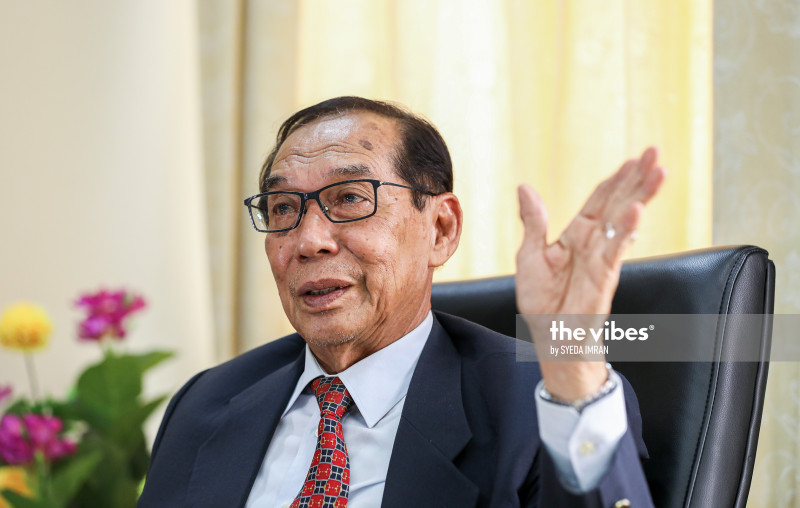

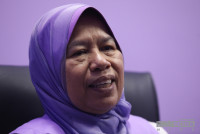
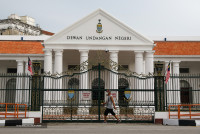



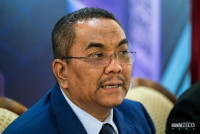






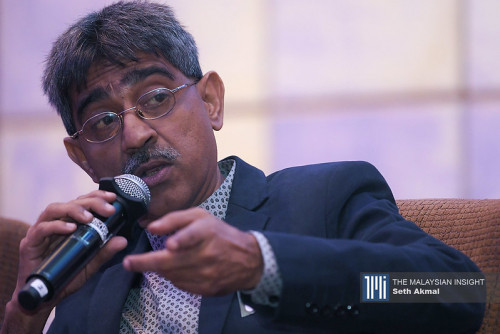


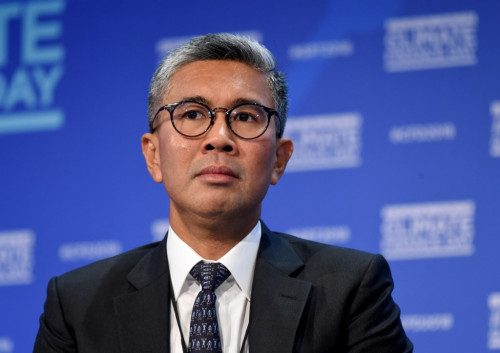
_visiting_the_Penans_of_remote_Belaga_district_in_central_Sarawak._Pic_by_Harry_Wing.jpg)
